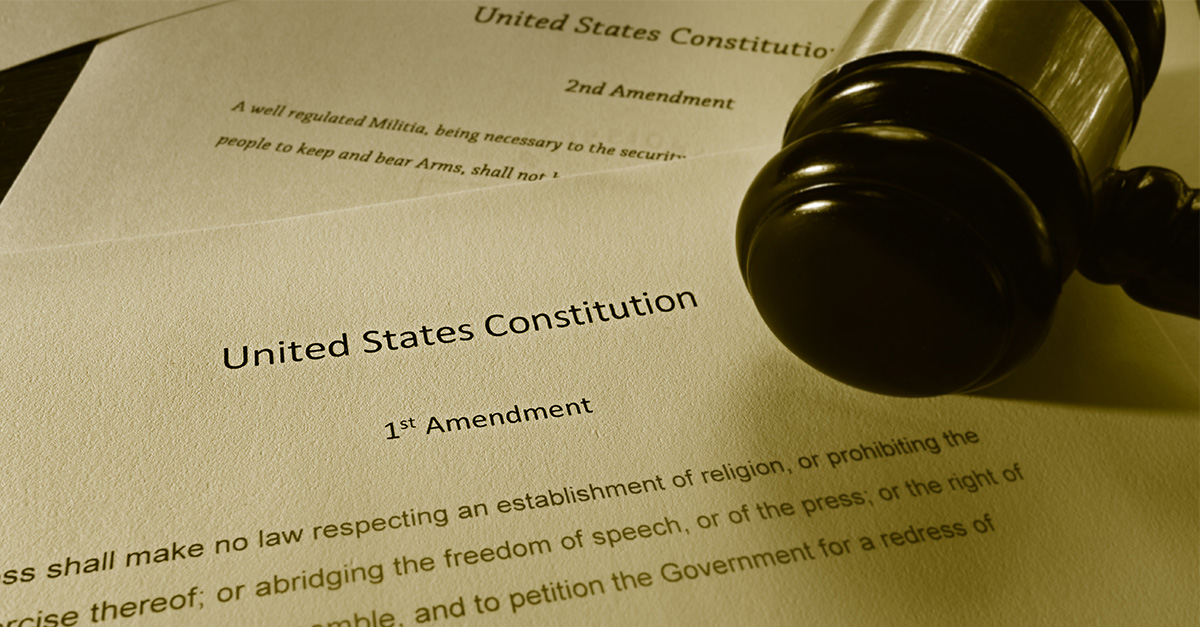


Get a free copy of Parental Rights & Education when you subscribe to our newsletter!

What this celebrity pastor likely intended as a clever rebuke of political “extremism” instead reveals a shocking misunderstanding of the crucifixion’s meaning, reducing a divine act of atonement to a trite political metaphor.
Earlier this month, Rick Warren, founder of the California megachurch Saddleback and author of the best-selling book The Purpose Driven Life, posted a now-deleted statement on X that ignited a firestorm of justified criticism.
“They crucified him, and with him two others, one on either side, and Jesus in the middle. The guys on both sides were thieves. If you’re looking for the #realJesus, not a caricature disfigured by partisan motivations, you’ll find him in the middle, not on either side.”
To say that this was an act of spiritual vandalism would, frankly, be too polite.
His post garnered 3.5 million views before he deleted it, attempting to cast it into the sealed tomb of bad Twitter takes. But we all saw it. And the Internet is forever. We all witnessed Rick Warren suggesting that Jesus’ physical position between two thieves somehow implies a “third way” for Christian politics — a moderate stance aloof from the partisan fray of Left and Right.
But what Warren likely intended as a clever rebuke of political “extremism” instead reveals a shocking misunderstanding of the crucifixion’s meaning, reducing a divine act of atonement to a trite political metaphor. His “interpretation” of the meaning of Christ’s physical positioning during the crucifixion not only distorts Scripture but also obscures the stark binary reality of human response to Christ: repentance or rejection.
The whole thing gets worse the longer you consider just how long Warren has been a pastor.
Does he really not know what the crucifixion is all about?
The crucifixion of Jesus Christ, detailed at great length in all four Gospels, is the fulcrum of Christian theology. It is not a symbol of compromise or centrism but the decisive act of God’s redemptive plan.
Yes, John 19:18, in its stark simplicity, records a historical detail: Jesus was crucified between two criminals. Yet its incomprehensible meaning and theological weight lie elsewhere in Scripture. Consider Isaiah 53:5, which teaches us that the crucifixion is when “He was pierced for our transgressions; he was crushed for our iniquities; upon him was the chastisement that brought us peace, and with his wounds we are healed.”
The cross is, first and foremost, about Christ’s sacrificial death for sinners, the single, final, and satisfactory act of penal substitutionary atonement for all who repent of their sins and believe in the Gospel. On the cross, Jesus Christ the Messiah fulfilled God’s promise to send a Redeemer to reconcile a fallen world to a holy God — the very promise God gave to mankind in the Garden of Eden after Adam and Eve ushered in the fall and brought the curse of death into the world. In God’s condemnation of the serpent in Genesis 3:15, He foretold of a day when the war between the seed of the woman and the seed of the serpent would be settled once and for all when the offspring of the woman “shall bruise your head, and you shall bruise his heel.”
That’s what happened on the cross. Christ’s death (and resurrection) was the divine fulfillment of hundreds of biblical prophecies throughout the centuries about a coming King, one who would be unjustly slain for the sins of others but rise again to eternal life, breaking the bonds of sin and death.
To suggest, as Warren did, that Jesus’ spatial “middle” position hints at a political “third way” is to wrench this sacred event from its entire biblical context and impose a modern, partisan lens where none belongs. It is a hermeneutical sleight of hand, substituting the eternal for the ephemeral in order to score some cheap political points.
The thieves crucified alongside Jesus further undermine Warren’s reading. Far from illustrating a spectrum of political moderation, they embody the binary response to Christ’s identity and mission. Luke 23:39-43 captures this vividly:
“One of the criminals who were hanged railed at him, saying, ‘Are you not the Christ? Save yourself and us!’ But the other rebuked him, saying, ‘Do you not fear God, since you are under the same sentence of condemnation? And we indeed justly, for we are receiving the due reward of our deeds; but this man has done nothing wrong.’ And he said, ‘Jesus, remember me when you come into your kingdom.’ And he said to him, ‘Truly, I say to you, today you will be with me in paradise.’”
There is no middle ground — only rejection or repentance. One thief mocks, clinging to pride and unbelief; the other recognizes Jesus as Lord, confesses his sin, and receives salvation. This is the Gospel in miniature: humanity stands at a crossroads, not on a continuum, before the crucified King. Warren’s “middle” Jesus flattens this drama into a platitude, stripping it of its salvific power.
As Michael Knowles put it, “Except that the thief to Our Lord’s right is in Heaven, and the thief to His left is in Hell. Not the best analogy for the point you wish to make.”
Equally troubling is the implication for Christian ethics. Warren’s post insinuates that faithful discipleship somehow occupies a neutral space between Left and Right — a third way that avoids the excesses of both. Yet Scripture does not present Christian morality as a convenient midpoint, blending progressive and conservative impulses into a tepid synthesis.
On so many major political and cultural issues facing us today, sound biblical teaching aligns decisively with conservative principles. Consider abortion: Psalm 139:13 declares, “For you formed my inward parts; you knitted me together in my mother’s womb,” affirming the sanctity of unborn life — a stance incompatible with the Left’s advocacy for “abortion rights” but resonant with the Right’s call to provide equal justice under the law for the preborn.
Or take marriage. Genesis 2:24 states, “Therefore a man shall leave his father and his mother and hold fast to his wife, and they shall become one flesh,” establishing a natural, heterosexual union as God’s design — a truth the Right defends against the Left’s redefinition. And regarding gender, Genesis 1:27 asserts, “So God created man in his own image, in the image of God he created him; male and female he created them,” a binary reality the Right upholds while the Left attacks and destroys it with insane transgender ideology.
Christian ethics, rooted in God’s unchanging word, are not “in-between” anything. Yes, not everything that the Republicans defend or advance can be supported by Scripture. But on the biggest political issues of the day, basic Christian political ethics is in a head-on battle against progressive dogma while still largely aligning with conservative commitments to life, family, and creation order.
Warren’s misstep is not merely a lapse in judgment; it is a theological embarrassment from a figure who has shaped evangelicalism for decades. That a pastor of his stature could so casually corrupt the crucifixion’s meaning is shocking, if not surprising.
Warren has been on a bad trajectory for quite some time (dating back at least to his oddly ecumenical prayer at Obama’s first inauguration in 2009 when he seemed to imply Christians and Muslims worship the same God). Since then, he’s become a full-blown egalitarian, embracing the false teaching of women pastors, for which he was kicked out of the Southern Baptist Convention. Let’s just say Southern Baptists have been roundly vindicated on that action.
His subsequent “correction” on February 16, 2025, was little more than more of the same: “I apologize. I wrote poorly. I don’t believe Jesus was a centrist. He stands far above it all. ‘My kingdom is not of this world…’ Jn.18:36 Jesus demands our total allegiance as the center of our lives.”
Okay, Jesus isn’t a “centrist,” he’s just “above it all.” That’s what we call a “distinction without a difference.”
As such, his apology serves more to compound the crime than to atone for his sin. Sean Davis of the Federalist sniffed out Warren’s weasel words and righteously let him have it:
“The problem was not what you wrote, which you well know. You communicated exactly what you intended to communicate, which was a condemnation of conservative Christians who rightfully understand that God condemns and prohibits abortion, trans ideology, and the chemical and surgical mutilation of children.
You very clearly confessed your true idol—a desire to be loved by the world and especially its elite cultural tastemakers—when you twisted the crucifixion of Christ and the story of the thief who was saved through repentance of sin and acknowledgment of Christ as the Messiah into a hackneyed “both sides’ modern-day political fable.
Now, rather than be honest about what you were doing, you’re transitioning from mealy-mouthed ‘Jesus is a centrist/both sides are icky’ nonsense to ‘akshully Jesus is above it all/both sides are icky’ nonsense. And it’s being done to bully and nudge faithful Christians on the right (nobody on the Left cares what you say about anything unless it can be weaponized against the Right, which you fully understand) into wrongfully believing that they’re sinful for being politically active.
We all see what you’re doing, and we’re not having any of it anymore.”
Perhaps the saddest part of this saga is that the post’s viral reach exposed a generation to a diluted Christ, one reshaped to fit a secular mold rather than the risen Lord who demands, “Whoever is not with me is against me” (Matthew 12:30).
For conservative Christians, who have long viewed Warren with suspicion for his pragmatic, seeker-sensitive approach, this incident confirms a drift from orthodoxy. It is a stark reminder that even megachurch celebrities can stumble into error when they prioritize relevance over reverence.
In the end, the man on the middle cross is not a cipher for political moderation but the Lamb of God who takes away the sin of the world (John 1:29). His death was not a gesture toward compromise but a triumph over sin and death, calling all to choose — life or destruction, faith or rebellion.
Ultimately, Warren’s error is a cautionary tale: When we bend Scripture to serve our man-made agendas, we risk losing the very truth that saves.
If you like this article and other content that helps you apply a biblical worldview to today’s politics and culture, consider making a donation here.

Notifications